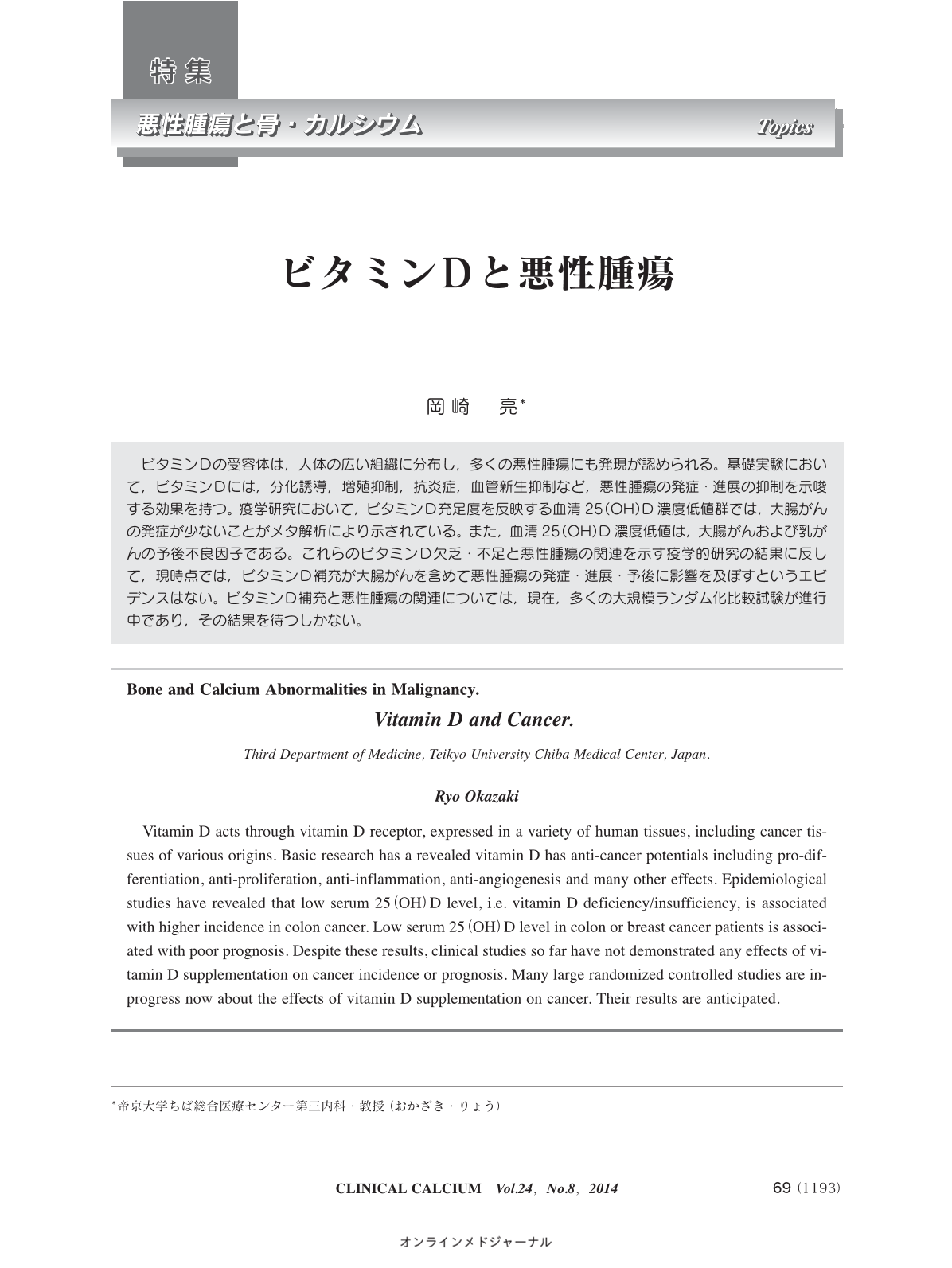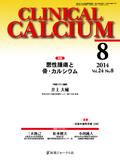Japanese
English
- 有料閲覧
- Abstract 文献概要
- 1ページ目 Look Inside
- 参考文献 Reference
ビタミンDの受容体は,人体の広い組織に分布し,多くの悪性腫瘍にも発現が認められる。基礎実験において,ビタミンDには,分化誘導,増殖抑制,抗炎症,血管新生抑制など,悪性腫瘍の発症・進展の抑制を示唆する効果を持つ。疫学研究において,ビタミンD充足度を反映する血清25(OH)D濃度低値群では,大腸がんの発症が少ないことがメタ解析により示されている。また,血清25(OH)D濃度低値は,大腸がんおよび乳がんの予後不良因子である。これらのビタミンD欠乏・不足と悪性腫瘍の関連を示す疫学的研究の結果に反して,現時点では,ビタミンD補充が大腸がんを含めて悪性腫瘍の発症・進展・予後に影響を及ぼすというエビデンスはない。ビタミンD補充と悪性腫瘍の関連については,現在,多くの大規模ランダム化比較試験が進行中であり,その結果を待つしかない。
Vitamin D acts through vitamin D receptor, expressed in a variety of human tissues, including cancer tissues of various origins. Basic research has a revealed vitamin D has anti-cancer potentials including pro-differentiation, anti-proliferation, anti-inflammation, anti-angiogenesis and many other effects. Epidemiological studies have revealed that low serum 25(OH)D level, i.e. vitamin D deficiency/insufficiency, is associated with higher incidence in colon cancer. Low serum 25(OH)D level in colon or breast cancer patients is associated with poor prognosis. Despite these results, clinical studies so far have not demonstrated any effects of vitamin D supplementation on cancer incidence or prognosis. Many large randomized controlled studies are in-progress now about the effects of vitamin D supplementation on cancer. Their results are anticipated.



